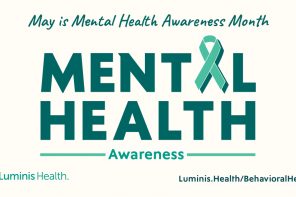One of the best ways we can improve our health is by forming meaningful social connections with other people. In fact, our social interactions have largely influenced the way our brains have evolved—from the way they worked millions of years ago to the way they function today. Being in love is a social connection we can share with someone that comes with many health benefits.
Here are few of the scientifically backed benefits of being in love:
The Heart and Love
Of course, your heart also plays a part when it comes to love. If your heart ever skipped a beat when someone you like came near, you know what we mean.
Studies have shown that individuals who are happily married or in committed relationships tend to experience lower risks of heart-related issues. The phenomenon is not solely tied to the initial stages of love. Long-lasting, deep bonds between partners contribute to a steady release of beneficial hormones and neurotransmitters.
Research also indicates that those who are involved in healthy, happy marriages have a lower risk of developing cardiovascular disease compared to those who experience stressful relationships or tend to feel lonely often.
The other good news for married folks is that they are more likely to survive heart disease and heart attacks compared to those who have never married.
Healthy lungs
It’s not just your heart that benefits from being in love. Being married can help protect against complications and death from pneumonia. Compared to unmarried men and women, married people are less likely to require ventilator support via a breathing machine, have shorter hospital stays, are less likely to end up in an intensive care unit and have 13 percent lower risk of dying during hospitalization for pneumonia.
The Brain and Love
Although we often associate love with the heart, scientists tell us that our brains are really in charge of our emotions. When you fall in love, your brain releases chemicals like adrenaline and norepinephrine, making your heart beat faster. Being in love works wonders for your mental health as well. Love, marriage and overall wellbeing reduce stress, which also strengthens your immune system.
Studies reveal that 12 areas of the brain work together to release “feel-good” chemicals such as dopamine, oxytocin, and adrenaline when you’re in love. Your brain’s reward system lights up when you talk about someone you love.
Even as the excitement of falling in love settles, if you have a strong, lasting bond with someone, your brain releases endorphins and hormones like vasopressin and oxytocin. These create a sense of well-being and security. High levels of oxytocin can also lower your blood pressure. Simple acts like holding hands with your long-term love can synchronize your breathing and heart rates and ease your pain.
- The hormones oxytocin and vasopressin interact with your dopamine reward system. This is the same system that causes people to feel good or happy when positive events happen, such as getting a pay raise or falling in love.
- Vasopressin helps control blood pressure.
- Cortisol, the stress hormone, initially rises when you fall in love, but quickly drops in a long-term, stable relationship. Low cortisol levels sustained in a long-term stable relationship contributes to many health benefits.
The brain’s cognitive areas, like the angular gyrus linked to language functions, become more active when you’ve been in love for a long time. This is why some couples can finish each other’s sentences.
Not Just Romantic Love
But it’s not all about finding a romantic partner. Loving your family, friends, or pets can give you similar health benefits. Here are some practical tips on how to build social support for a healthier heart:
- Nurture Relationships: Invest time and effort in building and maintaining meaningful connections with family, friends, and significant others. Share experiences, offer support, and celebrate achievements together.
- Open Communication: Foster open and honest communication within relationships. Sharing thoughts, feelings, and concerns helps strengthen emotional bonds and provides a sense of security.
- Cultivate Friendships: Actively seek and cultivate friendships. Attend social gatherings, join clubs or groups with shared interests, and be open to meeting new people.
- Quality Time: Spend quality time with loved ones. Whether it’s a simple meal, a walk, or engaging in shared activities, the quality of time spent together matters.
- Express Gratitude: Regularly express gratitude and appreciation for the people in your life. Positive affirmations strengthen bonds and create a positive emotional environment.
- Be a Supportive Friend: Offer your support to others in times of need. Being a reliable and supportive friend strengthens your own social connections and contributes to a reciprocal cycle of support.
Even something as simple as a hug can help. Most people know hugs can help you feel connected to other people, but did you know they can actually help prevent sickness? When you feel connected to others, especially through physical touch, you’re less prone to experience sickness caused by stress.
In one study of more than 400 adults, researchers found that the more often people hugged, the more their chances of getting sick decreased. Hugging may be an indicator of overall social support in a person’s life, which also promotes good health. In the same study, the adults who said they have a strong social support system had fewer cold symptoms than those who said their support system was lacking.
Recognizing the impact of love on heart health underscores the importance of actively fostering and cherishing meaningful connections in our lives. Whether through romantic relationships, friendships, or family ties, the love we give and receive plays a pivotal role in maintaining a healthy and resilient heart. No matter what your relationship status, remember that positive, close relationships are important for your overall health and wellness. Taking the time to invest in family members and friends is also an investment in your personal health.
 Geneva Tiggle, LCSW-C is the Clinical Director for Ambulatory Behavioral Health at Luminis Health J. McNew Family Medical Center
Geneva Tiggle, LCSW-C is the Clinical Director for Ambulatory Behavioral Health at Luminis Health J. McNew Family Medical Center




